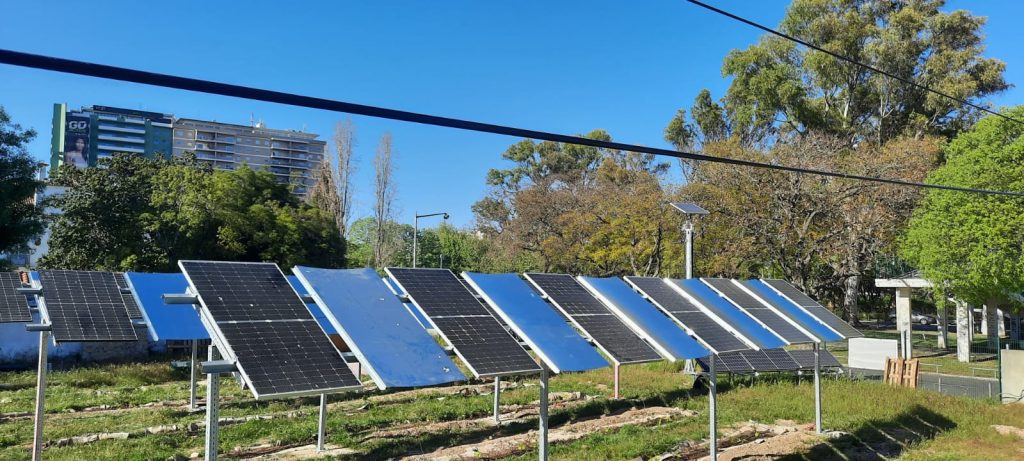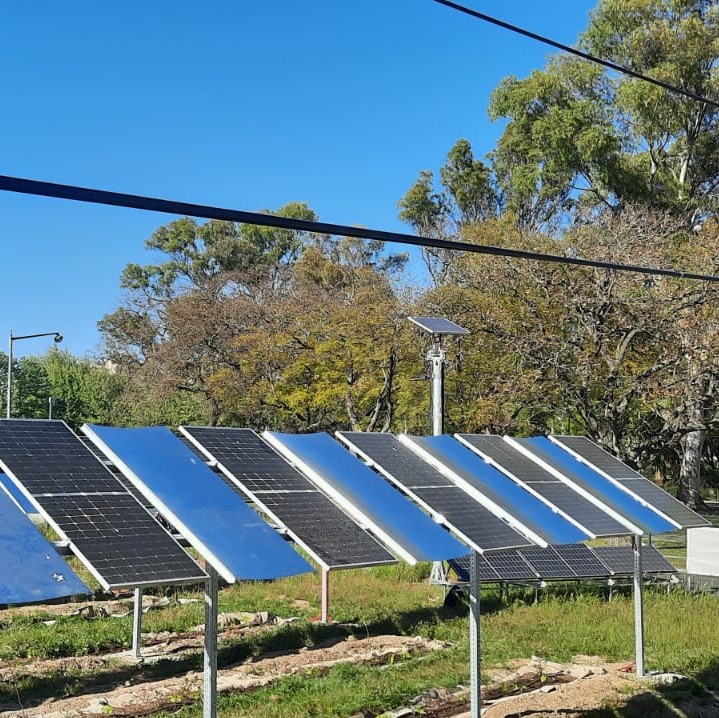Image4All is responsible for the installation and management of the photovoltaic production unit of the new FCUL Solar Garden. The project, with self-consumption development, aims to explore the combined and synergistic production of solar electricity and agricultural products. "Agrovoltaico" is a versatile solution with no impact on biodiversity

Lisbon, May 18, 2023 - A Image4All is responsible for the implementation and management of the photovoltaic production unit of the new Solar Garden of the Faculty of Science of the University of Lisbon (FCUL). The project developed by the engineering and energy efficiency company demonstrates the potential of the combined approach of photovoltaic generation and agricultural production - "agrovoltaic" - as a solution in a rural environment, but also in an urban environment.
The new "agrovoltaic" system is part of the @Ciências living laboratory for Sustainability and has Image4All as a partner, as part of the company's support for Research & Development in the scientific sector, in this case for energy needs, both to optimize the agricultural production cycle and for generation and self-consumption.
The urban garden at the Solar Campus is a multidisciplinary research and demonstration project for an "agrovoltaic" system to explore the combined and synergetic production of solar electricity and agricultural products. The new system is installed in the outdoor solar energy laboratory on the FCUL campus in Campo Grande, Lisbon, and, in addition to being a new source of energy, it allows scientific research to be conducted in the agricultural sector.
From an energy point of view, the main motivation for this "agro-voltaic" project is to allow us to solve a dilemma: installing large photovoltaic plants is relatively cheap, but they require land that could be used for other purposes, such as agricultural productions or simply natural landscape. They can also almost amount to a monoculture, which if not done well also has an impact on biodiversity.
Between the two dilemmas, agrovoltaic appears as a solution, because it has no impact on biodiversity, does not occupy the land and therefore allows other uses. The exploitation of the synergy between photovoltaic and agriculture, in terms of the profitability of the land, is also interesting from an economic point of view.
In the limit, the potential for use is almost infinite. As an example, to meet Portugal's renewable energy production goals of 20 GW in 2050 it would be necessary to use 1.5% of Portugal's agricultural area with "agro-voltaic" projects. There is plenty of space, you can choose the best sites, with better grid connections, without environmental licensing problems.
The project also explores implementation in cities, where it is more expensive because the projects are smaller. This project is a partnership with Horta FCUL and eventually the replication of this model will be in urban gardens in the city. It is an experiment in biodiversity in terms of the urban environment, assisted by experts to help understand the process.
At the agricultural level, the facility is divided into four zones, with different conditions in terms of shade at different times of the year. There is also a subdivision into rows in which one has normal irrigation, one is in dryland, and one has smart irrigation. The goal is to be able to evaluate the water needs and understand the differences in the growth of the plants.
The solar electricity generated by this Self-Consumption Production Unit (UPAC) is used to satisfy the consumption of other scientific experiments taking place in the laboratory, with injection into the grid of any excess generation. In the near future it will be integrated in a collective self-consumption system.
The UPAC developed by Image4All was installed in elevated structures and the modules were placed far apart so that initially the shading caused by the line of modules is not total. Image4All also supplied "dummies" panels (metal plates) to occupy the spaces between modules and thus vary the solar exposure on the ground below.
"This project, in addition to an answer for the agricultural sector, has a research dimension to which Image4All contributes in order to enhance and develop the country's scientific sector," says João Loureiro, Image4All's CEO. "Image4All's priority is to optimize the use of energy to improve profitability and sustainability", he summarizes.
In the area below the panels, FCUL placed test cultures (various plants) to verify how different levels of solar exposure affect the development and water needs of the fauna and flora. In this context, the project integrates the installation of two types of modules, normal and bifacial, to understand if there is any variation in their performance due to the existence of cultures or with the variation of solar exposure on the ground.
"The performance of the photovoltaic system with bifacial modules may benefit from the radiation reflected on the plants, which reflect radiation at a favorable wavelength for photovoltaic conversion on the modules," explains Professor Miguel Centeno Brito. "The photovoltaic generation may also benefit from eventual dirt and dust reduction and/or reduction of ambient temperature. Agricultural production, on the other hand, and the concomitant need for irrigation, may benefit from a more protected local environment, with some shading, especially at times of the year with greater heat stress," explains the FCUL project leader.
"The energy optimization in its multiple aspects is structural for the future and Image4All works to enhance and develop it," says the CEO of Image4All. "Over the years we have been innovating in the answers and expanding the range of solutions to add value for customers and projects from various sectors," adds João Loureiro.
About Image4All:
Image4All is an Engineering company dedicated to the diagnosis, development and integrated implementation of Energy solutions. It provides engineering and technical consulting services in three main areas: Energy Efficiency - with execution of contracts related to the implementation of energy efficiency measures, with a Public Works permit for this purpose -, Electric Vehicle Charging Points and Drinking Water Safety and Quality. Throughout its history it has delivered innovative solutions, both in new investments and in the improvement of existing facilities, in a diversity of Clients and Projects. Additional information at image4all.pt

